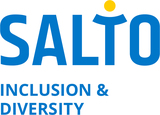Preparing the Team
Working on a Youth Exchange means working in an international team with partners from other countries. Teams where you will find different cultures, different educational backgrounds and different approaches when it comes to working with young people. These differences might have considerable consequences for many things when it comes to working together. During the exchange this might lead to misunderstanding, confusion and conflicts.
Therefore it's essential to take up the challenge of how to deal with these different perspectives and approaches. In the preparation time an adequate amount of time should be spend on exchanging and discussing approaches. A time consuming but also very interesting and enriching activity. It makes you reflect on your own working practice and probably your values and beliefs will be questioned. The main challenge is to come to a common approach in which individual values and beliefs are respected.
It helps in those discussions to take real cases to see how to act. It avoids the risk of getting only into theoretical never ending discussions. And.....in only a few weeks you will have to work with real cases anyway.
A preparation meeting is crucial but also take advantage of all the other communication possibilities that are there before and after your prep meeting. Send each other documents about your working principles and methods, start discussions on-line, write down worries and send them out, share the good and difficult experiences when preparing your young people.
A good and prepared team is a key element for a successful exchange.
As already highlighted in the planning chapter, sometimes it may feel difficult to hand over 'your' young people to a mentor in another country. Also here it goes that the approach towards working with young people can be quite different from yours. So again it's important to communicate. To inform the other about how you worked with the young person and why you chose that approach. To let the other know why you think this European Voluntary Service project can contribute to the development of the volunteer and what you see as main learning points for the young people.
There is a 'but' in this issue. Many of the young people we are talking about carry with them a big load of dossiers that are produced by all kind of people and institutions over the last years. Dossiers that create a certain image. The European Voluntary Service project offers the young people a new start without all that history. In other words it's important to be very careful and respectful when it comes to sending information about the volunteer to the hosting organisation. The best way to do this is to do it together with the young people. When possible, let the volunteer decide what is proper information to send about him or her in order to build a satisfactory relationship with the mentor.
Youth Initiatives have as an important characteristic that they are planned and implemented by young people. In other words: the role of the worker/coach is limited. At the same time we know that the young people of our target group might have considerable problems to start a project without any assistance. The role of the worker/coach therefore should be directed mainly at making the young people responsible for their project and giving them tools to manage. The worker/coach can be a reference point when problems arrive and can offer to be a regular meeting point for reporting the progress of the project. The challenge in this role is to find the right balance between assisting and leaving the responsibility with the young people. You don't want to miss the point where you can give a crucial spur for continuing their project but you also don't want to end up as the one keeping the project going.
- Find more tips and tricks for the coach in the SALTO Coaching Guide at www.SALTO-YOUTH.net/CoachingGuide/
- Add your tips and suggestions for preparing the team of youth workers below (log in with your SALTO username or create one)
^^ top ^^
 www.salto-youth.net/
www.salto-youth.net/
NoOffence/

 Protected from exclusion
Protected from exclusion
Downloads
The following downloads are available:
- No Offence - projects with (ex) offenders - 2010 update
How to organise (international) youth projects with young offenders, ex-offenders and young people at risk of offending or currently in prison - despite some limitations. Based on SALTO TC No Offence 2006.
